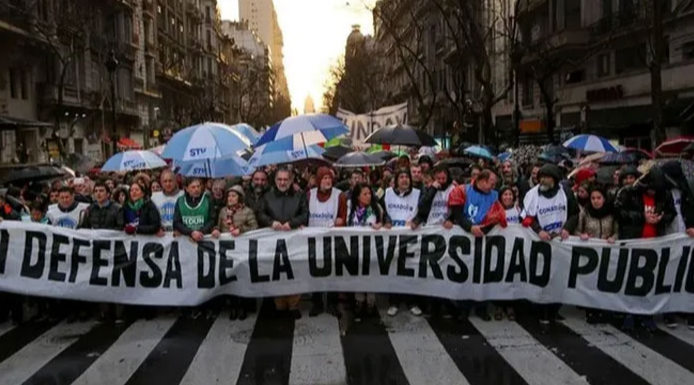
Argentines defend public universities
by María Josefina Arce
This week, Argentines will take to the streets in force to defend the functioning of public universities, which, according to statistics, account for 80% of the more than two million students in this level of education in the South American country.
These centers of higher education, which are a reference in Latin America and even in the world, such as the University of Buenos Aires, are today in a critical situation due to the economic program of the government presided over by Javier Milei, one of the pillars of which is the reduction of the budget.
Currently, the salaries of teaching and non-teaching staff, the daily operation of these institutions and the much-needed scientific work are being affected.
To add insult to injury, the President has announced his decision to veto the University Financing Law, approved a few weeks ago by Congress, which would have updated the budget and increased the salaries of the personnel working in these centers.
For this reason, Argentines will return to the streets next Wednesday to defend public universities, which are essential for the economic and social development of the South American nation.
Ricardo Gelpi, rector of the University of Buenos Aires, pointed out that these are very sad days, with empty classrooms and laboratories, and warned that the future of a large part of the country and of young people is at stake.
The General Confederation of Labor (CGT), Argentina's largest union, will join the march to demand that Milei's government allocate more funds to public universities and increase teachers' salaries in the face of high inflation, which reached 236% last August.
Under the pretext of taking care of the public accounts, President Milei's government is putting the future of Argentina at risk, while creating an untenable situation for the population, 52.9% of whom currently live in poverty.

